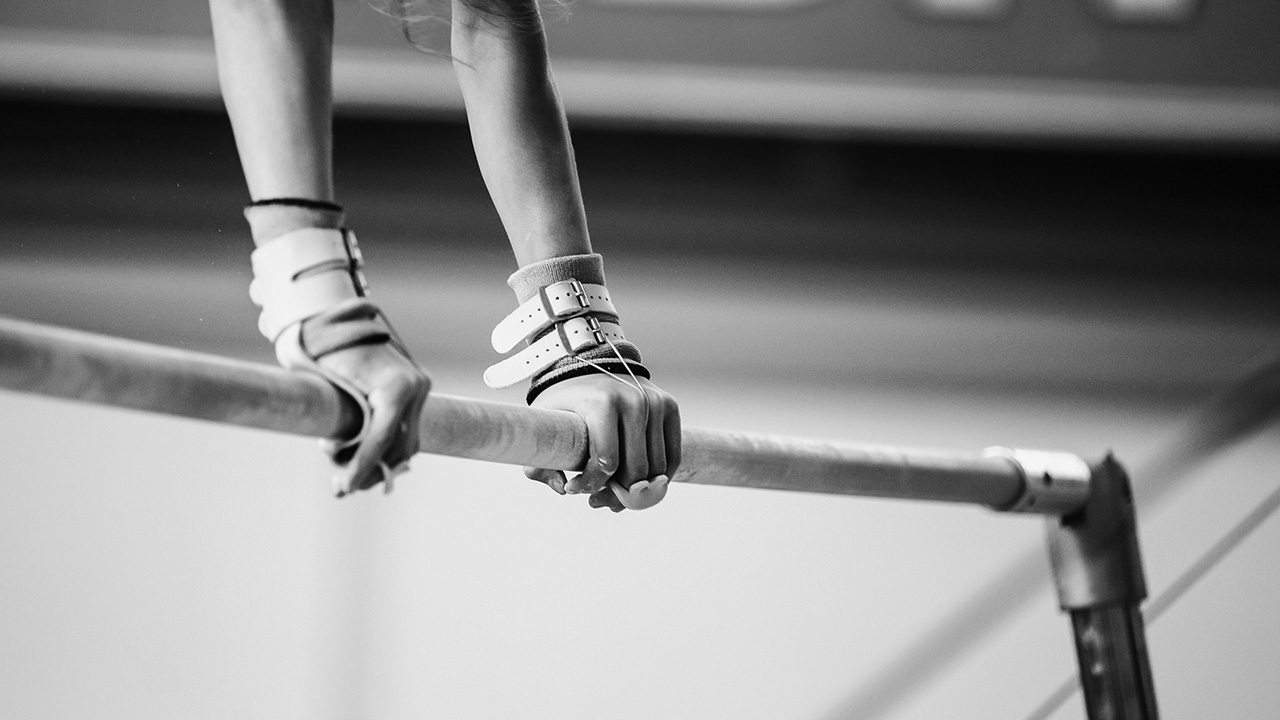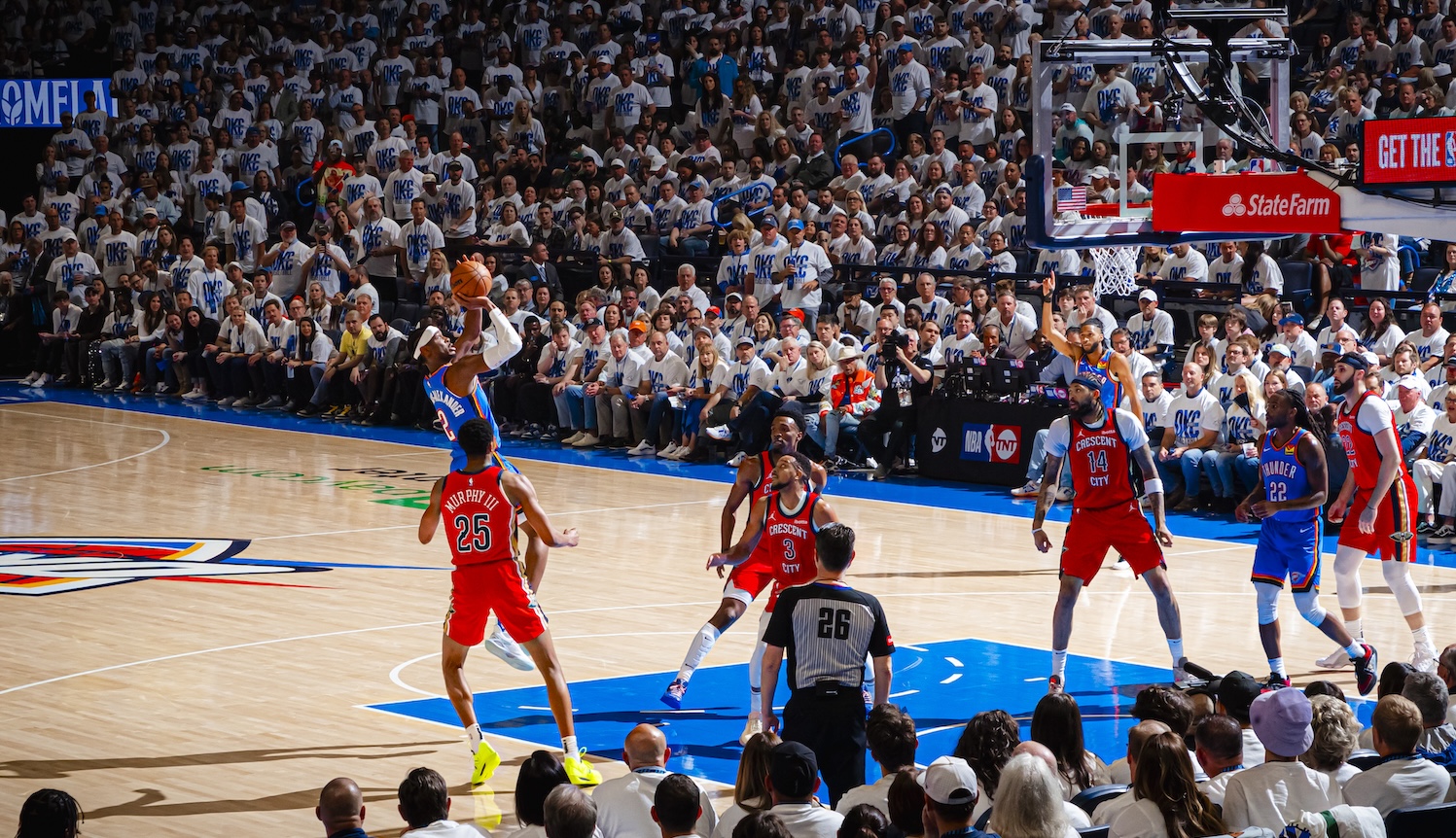In the beginning, Sarah Swanson's gymnastics journey felt exciting and promising. She went from a child doing back flips off her parents coffee table in Minnesota to flying through the various levels at Midwest Gymnastics, a Twin Cities area gym started by future Olympic coach and recent ESPN commentator Jess Graba. She even was put in a special program at Midwest because, her parents were told, she had elite potential.
Then Sarah started to struggle. Looking back, this wasn't shocking. This was around 2003, Sarah said. She had just turned 13, and puberty meant her body was changing. This also was around the time she broke her foot. Sarah started developing mental blocks, and the skills that once came easily grew hard.
This generally led to one of two reactions, she recalled, from her coaches at Midwest: belittling comments and being forced to practice skills on her own, unsupervised.
It was the unsupervised practice that would put her in the most physical danger. Like the day she was practicing blinds; that’s when a gymnast swings all the way around the bar in one direction, pauses at the top in a handstand, then switches grips and swings around facing the other way. Sarah had no problem doing a blind if there was a coach nearby to spot her. But without one, Sarah would hit her mental block. On this day, she recalled, the rest of her teammates moved on to another apparatus, and Sarah was left behind, alone, and told to just keep doing blinds over the foam pit. One went horribly wrong.
Sarah said she lost all her sense of where she was in the air and lost control. She was moving at such an angle that she slammed her back, upside down, against the nearby vertical platform used by gymnasts to get up on the high bar, then she slid down, somehow not landing on her head, but instead on the back of her neck on the concrete bottom before falling into the foam pit below, she recalled. Lying in the pit, Sarah said she thought to herself, OK, an adult is going to appear now and check on me. But no one did.
“Usually when you fall like that, an adult has noticed and comes over to help you. I looked up, and literally no one had seen it happen,” Sarah said. “No one was paying attention to know how close I just came to breaking my neck.”
So she stayed there, in the pit, alone, surrounded by giant foam blocks, stunned. The wind was knocked out of her, she said, and she couldn't breathe in.
“And for a while I’m going, am I paralyzed? I remember sitting there thinking that. And I move my toes. OK, those work. Hands work. Eventually my breath came back,” Sarah said. “And I pop up and then one of the coaches comes over, I don’t remember who, and said, ‘What are you doing in the pit, Sarah?’ And I was, like, ‘I don’t know.’ No one knew.”
Sarah kept on practicing that day, then she went home. Another former Midwest gymnast said that she did not see this happen but did remember other gymnasts talking about it and saying that, because nobody saw it, they thought Sarah's fall must not have happened. Sarah said that she did not tell her parents because events like that at Midwest, as far as she knew, were normal.
A lot about Midwest seemed normal to Sarah. It was normal to be unsupervised while doing gymnastics. It was normal that one of the gym's main coaches, Alison “Ali” Lim, would berate her, telling her, "You have a psychological barrier? That’s your problem" or, "You’re not being a good gymnast" or, "You’re letting yourself down, and, if you really were committed to this sport, you would be able to do this.” It was normal to be weighed once a week in front of all your teammates. It must have been normal because the gym's founder—Lim's former coach and future husband, Jess Graba—did nothing about any of this. Wasn’t this how all gymnastics gyms were?
With the help of time, therapy, and the wisdom that comes from becoming an adult, Sarah realized her time at Midwest wasn’t normal. It was dangerous. And she isn’t alone. Two other former Midwest gymnasts who attended the gym at about the same time as Sarah, approximately 2003 to 2006, told Defector Media similar stories from their time in Graba's gym. They recalled being belittled by Lim. They recalled being unsupervised while practicing dangerous skills, and the public weigh-ins. Both requested anonymity because they remain active in the gymnastics community.
One of the former gymnasts said she’s seen behavior at gymnastics meets that makes her worried that athlete safety still isn’t taken seriously at Midwest—and she’s backed up by a recent former coach at Midwest, who said while working there he saw gymnasts practicing while unsupervised and heard Lim belittling gymnasts.
Defector sent multiple emails to Jess Graba and Ali Lim requesting comment, including a list of questions for them based on its reporting. Neither Graba nor Lim responded to the emails, nor to voicemails left for them requesting comment.
Graba and Lim also are the subject of a report filed with SafeSport, the organization created by Congress to investigate sexual abuse and child abuse in Olympic sports, and the report outlines similar concerns to those raised by the three gymnasts—emotional abuse, public weigh ins, and dangerous falls. When asked if an inquiry had been opened, a SafeSport spokesperson told Defector it does not comment on cases.
The former gymnasts are all speaking up now because they love gymnastics, and they want the culture of the sport to change. They also are concerned specifically about Graba, who's perhaps best known to most people as the coach of Olympic all-around gold medalist Suni Lee.
If you watched any gymnastics during the Tokyo Olympics, it was almost impossible to miss Graba on the sidelines, and as Lee became one of the Olympics’ biggest stars—winning the all-around gold, the team silver, and bronze on the uneven bars—it led to speculation that more gymnasts would flock to Midwest, with parents convinced that the Grabas could lead their children to gold. With Lee just wrapping up her first collegiate season at Auburn, a team coached by Jess Graba’s twin brother, Jeff, there have been plenty of stories connecting Graba and Lim to Lee’s achievements. ESPN tapped Graba to appear as one of the experts on its new college gymnastics show, Gymnastics Countdown, which was promoted with an announcement noting Lee's success in Tokyo and how Graba would bring a "coach's perspective" to the panel. Defector reached out to Lee for comment through her talent management team but did not receive any response.
The Tokyo Olympics also led to speculation that Graba is one of the coaches being considered for one of the new leadership positions created to oversee the U.S. women's national gymnastics team, one of the most high-profile jobs in the sport. It was hearing this speculation that spurred all three former gymnasts and the former coach to speak out about what happened at Midwest. A spokesperson for USA Gymnastics would not say if Graba was being considered for any of the jobs, saying, "Our hiring and HR processes are confidential, and the process for these positions is ongoing."
“They never physically abused us, like hands on,” Sarah said. “But they programmed our brains in such a way that we were weaponized against ourselves to physically abuse ourselves.”
Midwest opened in 1995, started by twin brothers Jess and Jeff Graba, both former wrestlers turned gymnasts turned gymnastics coaches. According to an interview they did last year with FloGymnastics, the brothers started coaching gymnastics when they were 13, and they kept coaching through college to help pay their tuition. After graduating, per the article, the brothers tried non-gymnastics careers but decided that wasn’t for them. It was Jess Graba who suggested opening a gym of their own, which they did.
"We are going to stress national-level competition," Jess Graba told the St. Paul Pioneer Press when the gym opened in 1995. "We want to produce kids on national teams."
Jeff Graba left the gym in 2003 to pursue a career as a college gymnastics coach, starting at Utah State and eventually becoming the head coach at Auburn. All three gymnasts remembered Jeff and only had positive comments about him. While Jeff Graba left, Jess Graba stayed at Midwest and it was around this time, the former gymnasts recalled, that Lim began to take on a more prominent role in the gym.
According to a previous interview with the Minnesota Daily, the couple met when Jess Graba, along with his brother, started coaching Lim at the age of four. Lim trained at Midwest after it opened. According to the article, Lim was set to attend the University of Minnesota and join the Golden Gophers gymnastics squad for 2001-2002. But her name does not appear on any Golden Gophers gymnastics roster from that time.
All three gymnasts that I spoke to recalled that, pretty soon after she was supposed to join the Golden Gophers, Lim was back at the gym. There was a lot of turnover among coaches at Midwest, all three gymnasts said, with some coaches staying for maybe a year or two while Graba and Lim remained. (The couple married in 2009, according to Minnesota marriage records, after all three gymnasts had left the gym. He was 40, she was 26.)
It was 2003 when Sarah recalled flying off the uneven bars, then hitting her neck on the concrete before falling into the foam pit. And what happened to Sarah on bars wasn't an isolated incident. Another gymnast, one of the two who requested anonymity, also recalled this happening to her, too. Let's call her Vanessa.
Vanessa was about the same age as Sarah and also struggling with mental blocks on her skills. She had started out at a different club, but switched to Midwest in 2003 when she wanted to be in a more competitive environment. Jeff Graba left pretty soon after she started, she recalled, and she too said that this was when Lim began acting as the main coach for upper-level gymnasts. She noticed that at Midwest there was more disparaging comments and more injuries. But everyone else seemed to think this was normal and, she thought, maybe this is what it took to be a winner.
Like Sarah, Vanessa would be left alone to do skills she was struggling with and was told that she couldn’t move on until she stuck those skills a certain amount of times. She too was having trouble with her blinds on bars. One day, Vanessa was working on them. She had been told that she had to make three. After an hour and a half, she had managed two. She was so tired. Her hands were in horrible shape, raw and cracking. But she just wanted her blinds done and over with. So she kept going. She tried again but, this time, her body was crooked, so crooked that when she swung out of her handstand at the top of the bar she went completely sideways and flew off the bar, a loss of control that’s known as a peel.
“I peeled so sideways that, when I landed on my back, there weren’t any mats there because one wouldn't normally, when they fall, they wouldn’t travel that far to the side,” Vanessa said. “And so I landed on some … mostly concrete, very close to some other bars.”
She also, somehow, while in the air, knocked over the trash can that held the chalk for the gymnasts to use. Vanessa remembered landing on her back and looking up at the ceiling while the chalk from the trash can rained down on her like snow.
Her teammates saw her. Some ran over to help. Others giggled, which Vanessa understood. It must have looked really funny, all this chalk raining down on her. (Sarah said she didn't remember seeing but did remember everyone at the gym talking about it.)
“The thing that I also remember from that is I got up and in my head I was, like, I’m done. You don’t have to do blinds any more today," Vanessa recalled. “And then Ali looked at me and she said, ‘That didn’t count because you fell. Get back up on the bar.’ And I was just wrecked."
To get an idea of how dangerous it was for gymnasts to be doing skills without supervision, I talked to Erika Degnan. She's been coaching competitive and collegiate gymnastics for more than a decade in Minnesota. Gymnasts never should be practicing alone or unsupervised, she said. Even in a perfect situation, gymnastics is a dangerous sport, Degnan said, and having gymnasts practice skills unsupervised puts them in even more danger in two different ways. One is obvious: If something goes wrong, nobody is there to catch the gymnast and help reduce the risk for injury. But, she said, there's also this: If nobody sees what happened, they can't know the proper way to respond to a potential injury, and run the risk of making it even worse.
"The girl who fell into this foam pit. If you didn’t see how she fell, you don’t know how to appropriately help get that gymnast out of the pit," she said, using what happened with Sarah as an example. "If an athletes injures their neck and you didn’t see it—there are ways that you have to respond to those kind of injuries, and if you don’t see it and you respond the wrong way, it can be even more detrimental to that athlete's health."
Something going wrong can happen to any gymnast, Degnan said, pointing to Simone Biles having to pull out of multiple events in Tokyo due to the twisties and the catastrophic danger they put her in.
"And she's an elite athlete who clearly knows what she is doing. But even with an elite world champion, things can go wrong," Degnan said. "So think about those 12 or 13 year old girls doing that by themselves."
It wasn't just the physical danger that Vanessa recalled from when she was struggling on bars. There also was the berating from Lim, telling her: “You’re deciding to not be coachable. You’re not worthy of my time. You’re not going to turn into a successful adult until you can figure this out. What type of adult are you going to be if you can’t figure out how to do a blind?”
The third former Midwest gymnast, let’s call her Kim, also recalled being left alone when she struggled with a skill. For her, it was a series she did on the beam, two back handsprings in a row. She stood on the beam, she said, for at least two hours and was not allowed to drop her arms from around her ears until she made a certain number of handsprings. She was struggling to do two in a row, which meant she couldn't bring her arms down.
“Well, fast forward two hours and I still hadn’t gone and they actually kicked me out of practice," Kim said. "Telling me that I would never be able to have a gymnastics career if I couldn’t do this. You’re not going anywhere, get out of my gym.”
Kim was 12 years old.
Kim hadn’t started out with Graba and Lim as her coaches at Midwest. She began with other coaches, then transitioned to being coached by Graba and Lim when she reached level seven. (Gymnastics in the United States has levels one through 10, after which comes the elite track, which is where you’ll find the potential Olympians.) That’s when she started to notice things, like how she and her teammates got weighed once a week.
“The big thing that stood out to me was when she would weigh us. Like that’s never anything that was done,” Kim said, referring to Lim. “But then at the same time I had never been an upper-level gymnast before, so I always justified it to myself and even years, years later justified it to myself as that’s just how things were back then.”
Kim thinks it was on Wednesdays. But, regardless of the date, she remembered how it worked. They would go to the weight room, near the locker room, and Lim would weigh each of them, write down the weight, and each gymnast would have to say her weight out loud in front of everyone. Then Lim would calculate how many calories she believed that each gymnast had to burn in a week to lose a pound.
“I thought I was fat because of what they were saying. I was 120 pounds and solid muscle. But I look at pictures of myself, and my cheeks were sunken and I had dark circles under my eyes,” Kim said. “But that girl thought she was fat.”
Sarah also recalled the weekly weigh-ins. It was during what would become her last year at Midwest, and at that point she already was mentally checked out. Both Sarah and Kim said the weigh-ins appeared to be targeted at one gymnast, Vanessa. Vanessa weighed maybe a few pounds more than her teammates, and Lim used the weigh-ins to remind her of this. They were, for Vanessa, deeply humiliating.
“With me she would say: 'Oh, you weigh X amount but your teammate over here is taller and she only weighs this amount. Why?'” Vanessa said. “And I’m, like, I don’t know. And she’s like, 'Well, you know, maybe you should try harder to be more like your teammate there who weighs less than you, because I don’t understand why you weigh so much either.'”
Vanessa didn’t tell her parents about it. She didn’t want to tell anyone about it, she said, because she was a teenage girl and it was mortifying.
“That was not something that I wanted to talk to anybody about ever at all,” Vanessa said. “It was so embarrassing—being the example of what not to do or the before.”
This was a running theme that all three former gymnasts recalled: Being called uncoachable by Lim. Vanessa recalled Lim telling her that, if she couldn't get through a challenge, she wouldn't be a competent adult.
"Not just a competent gymnast," Vanessa said, "but a competent adult."
Another source of criticism from Lim was Vanessa’s back pain. While at Midwest, it grew so bad that, Vanessa said, she was seeing physical therapists and chiropractors, while limping at school all day. But when she showed her doctor’s notes to Lim, saying she needed to be practicing less, Lim ignored them and told her, as Vanessa remembered it, “I don't care."
“She told me that I was slacking, that I was lying,” Vanessa said. “That I had asked the doctor to write the note so that I wouldn't, so that I could get out of the things that I didn’t want to do or so that I could get out of the things that I was bad at.”
Sarah said that she didn't recall specifically seeing Lim call Vanessa a liar, but that those types of comments were "very commonplace" at Midwest. Sarah said that a common response to her from Lim when she said that she was in pain was, "No, you're just faking it because you're scared to do it." Kim said that she was told to keep practicing and competing through serious injuries. "That was just very common," Kim said.
Berating wasn't only for practicing gymnastics skills. One assignment that all three gymnasts recalled was being told to run laps, unsupervised, in the industrial area around Midwest’s building. When Vanessa finished last, she said this led to comments from Lim, who then told her to run more laps outside.
“So then I’d have to run laps outside. None of this is doing any help to my asthma. So I’m wheezing. I’m taking my inhaler, obsessively at this point. My whole body is shaking. I’m crying," Vanessa said. "There was nobody out there. ”
Afterward, Vanessa had to go back inside and do her gymnastics. This was how rewards and punishment worked at Midwest, all three gymnasts recalled. Finishing first in running meant you could skip out on extra conditioning. Finishing last meant more laps, and probably comments from Lim.
Years later, Midwest would move to a different commercial location and kept the practice of having gymnasts run outside.
In 2011, a 16-year-old Midwest gymnast was running outside with her teammates when she was struck by a dump truck and died from her injuries. It was witnessed by her teammates, and investigators documented their conversations with two of them in their reports, according to the Ramsey County Sheriff's Office's case documents. The documents only mention Midwest twice, both in passing as a building that the girls were nearby. Afterward, Midwest began a meet in her honor. This year was its 10th in a row.
All three former gymnasts said they didn’t tell their parents much about what happened at Midwest. Some of this they chalked up to thinking that what was happening to them was normal, that it was how you got to be an elite. Some of this they attributed to their own naïveté; they were all well under the age of 18 at the time. Some they explained as their own families’ lack of information; none of them had parents with backgrounds in gymnastics.
And another factor all three former gymnasts mentioned was they feared being punished for speaking up. For example, Kim recalled a sleepover, around Christmas time in probably 2003. Graba and Lim were supposed to be supervising them, and they were not, Kim said. Instead, they were upstairs in the office, Kim recalled. When the girls talked about this in practice, they got yelled at by Lim.
“Yep, [she] sat us all down, and then started screaming at us,” Kim said. “ I think Jess, I can’t quite remember, I think Jess was there, and I think he was maybe a little more level-headed about the situation but she was—that was probably one of the worst practices.”
Not asking questions at Midwest wasn’t something just the gymnasts figured out. It was communicated to parents as well, as Sarah recalled. For example, Sarah said that, when she started in the gym's Junior Elite Training Program, her parents were told at a meeting to not freak out about injuries. They were just going to happen.
“They said that it’s not if they get injured, it’s when You have to trust us. None of you were Olympians yourselves. You don’t know what it takes,” Sarah said.
Sarah's parents, Kevin and Doreen Swanson, also recalled the meeting and being told that injuries were just going to happen. Doreen Swanson said that the gym's coaches almost made it seem benign; there would be injuries, but they shouldn't worry too much because they’ll take care of the kids.
“They would not necessarily hide from us what happened, but they would downplay, so to speak," Kevin Swanson said. "Or say, 'Oh, she did take a fall today.'"
Parents were “highly recommended to not come and observe practice,” Sarah recalled, and parents who did get too involved in the wrong way became the subject of gossip, and nobody wanted to have that mom or dad. This was not a culture exclusive to Midwest. In the documentary At the Heart of Gold, Dawn Homer talked about when her daughter, Trinea Gonczar, became a level-five gymnast. The parents were invited to a big meeting, where they were told, "100 percent of your children will be injured." (To make them feel safe, they also were introduced to one of the trainers: Larry Nassar.)
Parents were allowed to come in and ask Graba questions, like office hours, and Kevin and Doreen Swanson both recalled using that time to talk to Graba about their daughter. They felt at the time that the coaches at Midwest were the experts, and they trusted them. But looking back, while Graba might have been a great gymnastic skills coach, they believe he and Lim probably didn’t know enough about the psychology of teenage girls.
“They might have known how to coach the technical stuff,” Kevin Swanson said, “but they didn’t seem to have the skillset or training to be real effective with the interpersonal dynamics and the other things that go along.”
Looking back, Sarah said, “They had the parents trained so well.”
Kim said her parents pulled her from Midwest after she fell off bars at a meet and landed incorrectly on one of her wrists. Kim told her coaches that something seemed wrong, and they responded by telling her that, if something was really wrong, she would be crying. So she got back up and finished her bar routine. Her parents took her to the doctor the next day, and learned that her wrist was broken. She described her mom's reaction as: "You made my child compete on a broken wrist? We’re done. You're done with gymnastics."
Kim was mad at the decision, but also relieved. Years later, when her parents were moving, she found her old journals from around that time. In one, she had written, “I wish we would get in a car accident on the way to practice so I didn’t have to go to gymnastics.”
“Which is not something that a 12- or 13-year-old should ever write. And that was the only way out that I saw,” Kim said. “So, in a sense, when my mom pulled me out, I was relieved."
Vanessa left Midwest after three years because her parents pulled her. Even though she didn’t tell them everything, they knew things weren’t right with their daughter, and at meets she recalled them talking to other coaches, seeing if they could find a new gym for her, which they did. When she started in her new gym, she thrived.
“I remember going there and I had wrist braces. I needed my ankle taped. I was still limping because of my back. And in three months, I didn’t need the wrist braces anymore,” Vanessa said. “I didn’t need the ankle tape, and my back pain had mostly subsided just because of the way that they were training and the way that they were treating me and my teammates. It was like night and day.”
I asked Vanessa why she didn’t say anything to her parents about wanting to leave Midwest herself. “I was really afraid of going somewhere else,” she said, “and having it be exactly the same or worse.”
Sarah also was pulled by her parents because they too knew something wasn’t right with their daughter. She kept coming home with more and more ice packs, Doreen Swanson said. Both Sarah’s mother and father said that her demeanor was changing. Another year of gymnastics was approaching, and they took a look at all of it: what it cost them financially, and what it seemed to be costing their daughter emotionally. They decided this wasn’t worth it anymore. Doreen Swanson talked to her daughter about this while they were driving home from a gymnastics meet.
“I said, ‘We gotta talk,’” Doreen Swanson said. “And I said: ‘We just—it’s just not worth it anymore to see you coming home hurting and angry. You have a very limited friend group, and life is so much bigger than this.’”
Sarah went silent. She pushed her passenger seat back all the way. Doreen Swanson tried to draw her out, to get her to talk. She told her daughter, “I'm going to drive around until we talk about this.” She estimated they drove around for about an hour. It was, Doreen Swanson said, “definitely one of the most difficult parenting things I’ve done.”
It was so hard because, as all three former gymnasts told me, gymnastics was their world. They trained for hours every day, probably spending 20 or 30 hours a week in the gym. Most of their friends were friends from gymnastics. Being told they couldn’t go back, even when that was clearly the right decision, felt like they were being cut off from part of their identity.
For Vanessa and Kim, who have stayed active in the gymnastics community, they’re still worried about training conditions for athletes at Midwest.
Kim said her concerns were due to her interaction with a Midwest coach at a gymnastics meet in 2021. She said the coach told her that Midwest had an 8-year-old who, in 2020, competed at level four, moved to level five in 2021, and hopefully would be going up to level six. The coach told Kim that they thought that was too much to put on a child.
Vanessa said it was behavior she saw at gymnastics meets that caused her concern. She said that, at multiple meets between 2017 and 2019, she saw a Midwest coach who didn’t seem to know what she was doing. Some of what Vanessa saw were smaller issues that are still important—like not knowing how to properly set up the mats, which makes the set up take longer, which then means those gymnasts have less time to warm up and compete a little colder.
There also were skills she lacked that meant potentially putting gymnasts in danger, like not knowing how to spot a vault. This led to crash after crash after crash in the warmups she saw, Vanessa said. Vanessa said she confronted the Midwest coach about this and said she still keeps an eye out for at meets, just in case. But it’s just a band-aid on the situation, she said, because “it doesn’t solve the broader problem of why is she coaching these kids.”
A former Midwest coach, let’s call him Noah, said he stopped coaching at the gym because of how many times he saw gymnasts practicing with coaches who weren’t experienced enough. Noah said he saw coaches working there who couldn’t spot properly on vault, which he called “one of the most dangerous events.” Other times, he said, gymnasts were practicing skills unsupervised. Noah recalled that, at least five times, he saw gymnasts given a list of skills to practice without a coach to watch them.
“Sometimes they have a coach who comes in and just watches but she can’t coach, she doesn’t know what she’s doing," Noah said. "She’s a parent.”
Like the former gymnasts, Noah recalled seeing Lim berate a gymnast. He said that he saw Lim get so mad at one time that she told the a gymnast, "I am never coaching you again and I’m never going to make a plan for you again." Noah added that one coach there told him she stood in a certain way, with her back to the window, so the parents who came to observe couldn't see her mouth and have an idea of what she was saying.
All three former gymnasts said they are speaking now because they want change, both at Midwest and in the broader gymnastics community. They want an investigation done into Graba and Lim's coaching methods and treatment of gymnasts. They want USAG to not consider Graba for any leadership position over athletes, especially at a national level. Jess Graba not being appointed to one of the open national team jobs with USAG was extremely important to all three of them. None of them could see the sport moving forward and changing its ways with him at the helm. As Sarah said, "I think that will be a major setback for the sport. And the cultural changes that so many gymnasts have been advocating for over the last few years."
All three also talked about accountability, both for past actions as well as making sure that any current abuse at Midwest stopped. Sarah said she didn't want either Graba or Lim coaching athletes anymore. Vanessa said she wanted the Grabas to realize that what happened was wrong.
"I want Jess and Ali to fully realize the breadth and depth of the emotional, mental, and physical harm they've caused to so many athletes," Vanessa said, "and to have the ability to own it, to truly apologize for it, and to never treat people this way again. "
Vanessa went on to make a Division I gymnastics team, and she's proud of her gymnastics career. She believes that was only possible because she finished her level 10 career away from Midwest, at a gym where her development was encouraged and her health mattered. Once it stopped being about her medal potential and started being about her as a person, she became a stronger athlete.
"There's no reason for [a] good coach to feel threatened by this article," she said. "And there is very good reason for [a] good coach to help us push toward a better gymnastics culture."
Sarah has a similar story. For years, Sarah said that she still heard Lim's voice in her head after leaving gymnastics whenever she was doing athletics, saying she was letting herself down. But then she switched to diving. It was on her college diving team, Sarah said, that she flourished as an athlete and learned that the tactics used by Graba and Lim and other coaches throughout the gymnastics world, "are absolutely not necessary and are actually counterproductive for elite athletes."
They all realize that change will about more than any one gym. In February, multiple former gymnasts from the Parkettes gym in Allentown, Pennsylvania, said were weight-shamed, forced to practice while injured, and had lewd and sexually inappropriate comments made at them by a coach. In March, multiple gymnasts said they had been verbally and psychologically abused by coach Valeri Liukin, who at the time reportedly was being considered to oversee the national team. In April, about 70 Canadian gymnasts signed a letter condemning abuse in their sport. This follows the years of reporting on the hundreds of girls and young women sexually abused by former national team doctor Larry Nassar, and the outpouring of gymnasts across the globe telling their stories of abuse after the release of the documentary Athlete A, which detailed how those in power covered up for Nassar for decades.
Like so many gymnasts who have spoken out, the former Midwest gymnasts want the gymnastics community to realize that the "old way" has to end. None of the winning was ever worth the price, if it resulted in winning at all.
"I want to see the gymnastics community open their eyes, quit defending those who did wrong, and for those who have done wrong to be held accountable for their actions," Kim said. "I don't want anyone to fear retaliation and I don't want another girl to grow up, look back, and think that's just how things were back then."
Correction (May 6, 7:28 p.m. ET): This article has been updated to reflect that Suni Lee won a gold, a silver, and a bronze medal in Tokyo.
If you liked this blog, please share it! Your referrals help Defector reach new readers, and those new readers always get a few free blogs before encountering our paywall.
Investigations Editor. You can reach her at diana@defector.com or, if you prefer protonmail, dfmoskovitz@protonmail.com. If security is a concern, download the Signal app and send her a text at 929-251-8187.
Read More:
Stay in touch
Sign up for our free newsletter





